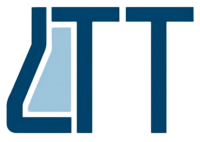
Study areas
Archaeology
If you have a passion for history and a keen interest in uncovering the past, pursuing an Archaeology course can be an exciting pathway. With a total ...
Astronomy
Astronomy is a captivating field that opens up various pathways for learners with prior qualifications. For those looking to deepen their understandin...
Biology
Biology offers a diverse range of learning opportunities for individuals in Australia, whether you are just starting or looking to advance your knowle...
Botany
Embarking on a career in Botany offers an exciting opportunity to explore the intricate world of plants and their vital roles in our ecosystem. If you...
Chemistry
If you are passionate about the intricacies of matter and chemical reactions, explore the diverse range of Chemistry courses available in Australia at...
Data Sciences
The field of Data Sciences is rapidly expanding in Australia, offering a broad array of opportunities for both beginners and experienced professionals...
Dermal Science
Embarking on a career in Dermal Science offers a wealth of opportunities in Australia, particularly for individuals with prior experience or qualifica...
Earth Science
Explore the fascinating field of Earth Science through a variety of advanced courses available in Australia. With a total of 24 courses listed on Cour...
Food Science
Welcome to the world of Food Science, a dynamic field that explores the intricate relationships between food, health, and technology. If you are based...
Forensic Science
For those interested in pursuing a career in Forensic Science, Courses.com.au offers a comprehensive list of Forensic Science courses across Australia...
Mathematics and Statistics
Explore the dynamic world of Mathematics and Statistics courses available across Australia on Courses.com.au. With a total of 77 courses listed, learn...
Meteorology
Meteorology is a fascinating field that offers numerous opportunities for individuals interested in understanding weather patterns, climate change, an...
Neuroscience
If you're fascinated by the workings of the brain and nervous system, studying Neuroscience could be a rewarding path for you. At Courses.com.au, we l...
Physiology
If you're looking to advance your understanding of human physiology, Courses.com.au offers a comprehensive selection of Physiology Courses in Australi...
Popular education and training courses
Certificate IV in Laboratory Techniques
- There are no mandated entry requirements.
 LTT
LTT
Diploma of Nursing
- There are no mandated entry requirements.
 Southern Cross Education Institute
Southern Cross Education Institute
Certificate III in Laboratory Skills
- There are no mandated entry requirements.
 LTT
LTT
Certificate III in Investigative Services
- There are no mandated entry requirements.
 Asset College
Asset College
Professional Certificate of Competency in Big Data and Analytics in Electricity Grids
- There are no mandated entry requirements.
 Engineering Institute of Technology
Engineering Institute of Technology
Graduate Certificate in Safety, Risk and Reliability Engineering
- There are no mandated entry requirements.
 Engineering Institute of Technology
Engineering Institute of Technology
Data Analytics with Python: Elevate
- There are no mandated entry requirements.
 Academy Xi
Academy Xi
Data Analytics: Elevate
- There are no mandated entry requirements.
 Academy Xi
Academy Xi
Data Analytics: Transform
- There are no mandated entry requirements.
 Academy Xi
Academy Xi
Certificate III in Pathology Assistance
- There are no mandated entry requirements.
 Adept Training
Adept Training
Advanced Diploma of Civil and Structural Engineering (Materials Testing)
- There are no mandated entry requirements.
 Engineering Institute of Technology
Engineering Institute of Technology
Professional Certificate of Competency in Digital Twins and Simulation Monitoring
- There are no mandated entry requirements.
 Engineering Institute of Technology
Engineering Institute of Technology
Graduate Certificate in Industrial Automation and Machine Learning
- There are no mandated entry requirements.
 Engineering Institute of Technology
Engineering Institute of Technology
Professional Certificate of Competency in Smart Grids
- There are no mandated entry requirements.
 Engineering Institute of Technology
Engineering Institute of Technology
Certified Data Science Professional
- There are no mandated entry requirements.
 Lumify Learn
Lumify Learn
Certified Data Science Professional
- There are no mandated entry requirements.
 Lumify Learn
Lumify Learn
Certified Data Science Professional
- There are no mandated entry requirements.
 Lumify Learn
Lumify Learn
Certified Data Science Professional
- There are no mandated entry requirements.
 Lumify Learn
Lumify Learn
Certified Data Science Professional
- There are no mandated entry requirements.
 Lumify Learn
Lumify Learn
Certified Data Analytics Professional
- There are no mandated entry requirements.
 Lumify Learn
Lumify Learn
What type of course is right for me?
Vocational Education and Training
VET is designed to teach you workplace knowledge and practical learning to ensure you are job-ready in the skills employers need.
VET courses are nationally recognised and delivered by Registered Training Organisations (RTO).
- Job-ready skills
- Nationally recognised qualification
- Shorter course durations
- Lower entry requirements
Higher Education
Higher education is focused on academic and theoretical studies and can lead to a broad range of professional careers.
Higher education courses are nationally recognised and delivered by universities.
- Broad career options
- Nationally recognised qualification
- Longer course durations
- Higher entry requirements
Industry Training
Industry training is designed with direct input from industry experts and employers, ensuring the content is relevant to current job market trends.
Industry courses do not lead to a formal qualification but many offer industry recognised certifications.
- Specialised skills
- Industry recognised
- Shorter course durations
- Lower entry requirements
More about science courses
Science courses in Australia offer a versatile pathway for learners pursuing a career in various fields, including data analysis, laboratory work, and clinical research. With a comprehensive range of courses available, you can choose from beginner options like the Certificate III in Laboratory Skills MSL30122 or the Certificate II in Process Plant Operations PMA20116 that cater to those with no prior experience. Alternatively, experienced learners can advance their skills with high-level qualifications such as the Master of Clinical Exercise Physiology or the Bachelor of Science (Earth Science).
As students in Australia progress through their studies, they will encounter dynamic job roles that require their newly acquired skills. Graduates of science courses can look forward to pursuing careers such as Data Scientist, Laboratory Technician, or Quantitative Analyst. Each of these positions can offer exciting challenges and opportunities in a range of industries, from healthcare to technology.
For those preferring an on-campus learning environment, several reputable training institutions offer science courses, making it accessible for students studying locally in cities like Melbourne, Sydney, and Brisbane. South Metropolitan TAFE, for instance, presents face-to-face training for students enrolled in the Certificate IV in Laboratory Techniques. Similarly, TAFE Queensland offers valuable diploma programs, equipping learners with industry-relevant skills.
Science education in Australia doesn't only provide vital theoretical knowledge but also prioritises practical applications. With a well-rounded approach that includes hands-on experience, courses such as the Certificate III in Manufacturing Technology MSA30208 prepare students to meet real-world demands. Furthermore, students involved in sectors like food science can opt for qualifications such as the Certificate IV in Food Science and Technology FBP40421, ensuring a robust education tailored to everyday needs.
With a total of 386 science courses available on Courses.com.au, learners can find detailed information and opportunities to suit their career aspirations. Each course is designed to develop a comprehensive understanding of science principles while enhancing practical skills. The extensive network of training providers, like UOW and Deakin University, ensures that students receive high-quality education in their chosen field. With the right qualification, graduates can enter the workforce equipped for roles such as Big Data Engineer or Machine Learning Engineer.
Further reading


A Beginner's Guide to Laboratory Technician Training in Australia
7th February 2025

